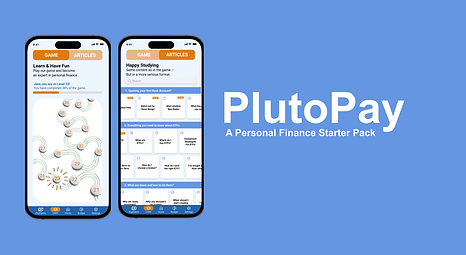
Timeline
-
7 Day Sprint
My Role
-
Solo UX Designer
PROBLEM
There is an abundance of untapped creative potential
As a person with a knack for all things creative, I've noticed that finding and booking art classes in Berlin is time-consuming and at times I would give up, rather than reply to the millionth email to the instructor.
This sparked the question - if there was a way to make this process easier, would less creative people incorporate creativity into their lives?
SOLUTION

An aggregated Art-Class Marketplace for discovery and instant booking


COMPETITION
Art Workshops are offered sporadically on event- or meet-up websites and long-term classes with governmental educational institutions. No competitor was identified that aggregated the classes, comparable to popular sport class apps.
The competiton is not dedicated to art

ONLINE SURVEY
Participants want to do more creative things, but don't know where to start.
The common consensus of the online survey conducted with 64 participants is that:
-
Practicing creativity is important for personal growth
-
People are not interested in researching art studios/classes on their own
-
Communicating back and forth with instructors to book classes, understand pricing, and then paying is not convenient
-
Some are frustrated with the quality of information given on artist’s personal websites
TARGET AUDIENCE
-
Young Professionals
Eager for new leisure and date experiences
-
Parents
Enrolling their children in art classes
-
Established Companies
Incentivizing employees to be creative through corporate benefits and team events
The Busy, The Parents & The Companies
THE CREATIVE URBANITE PERSONA

USER FLOW
Booking a Class
Searching and booking an art class is the main
.png)
DESIGN
Taking a Step Back
Initially, I had the intention of designing an application that would be advantageous for a) the end consumer, and b) the art-class instructor. Due to the time constraint of a 7-day design sprint, I had to pause this idea.
Additionally, I had planned to map out a responsive web application, but have opted for a mobile-first approach to fit the theme of convenience, as well as work with my time constraints.
LOW-FIDELITY
The First Wireframes
User Flow: Booking a Class

MID-FIDELITY
The Second Wireframes
User Flow: Booking a Class

USABILITY TESTING
Two interviews later
Two interviews, lasting around 10 minutes each. Participants were asked to a) find a pottery class in Kreuzberg, Berlin that they could join today and b) view the scheduled event within the app. Insights generated provided the opportunity to improve the features of the app. Overall, no catastrophic errors were spotted, however smaller issues were spoted:
User Desires
-
Ability to book classes for multiple people
-
Number of spots left
-
Month name lacking in date slider
UI Challenges
-
Icons too small
-
Confirmed booking is not clear
HIGH-FIDELITY
The Final Wireframes
An Assortment of Frames

The Style Guide

CONCLUSION & LEARNINGS
What I'd do differently next time...
Considering that this case study was a 7 Day Sprint and with that given time constraint, the list of what I would like to have added, or done differently is a long one. My three biggest learnings are as follow:
1. Substite the Online Survey for User Interviews. I would opt to conducting 1-2 longer interviews with ponetial users, rather than using an online survey for my user research. I believe I would have received more in depth insites to generate more concrete ideas.
2. Iterate more. I have used my first draft of the low fidelity wireframes as the backbone of my design. I should have given myself more time to work out different solutions. I believe I could have come up with a better design.
3. Focusing more on the UI. I have struggled a bit with presenting my design in an aestehtic manner and need to practcie this more to imrpove. For the next sprint, I would like work backwards and create a style guide prior to divinig into the visuals of each individual frame.

